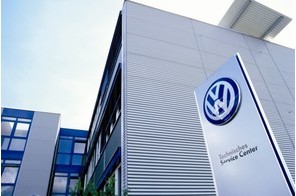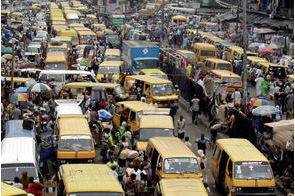Global transition to green economy too slow, uneven – new report

Summary
Progress recorded in reduction in the consumption of meat and increase in agricultural yields.
The World Resources Institute (WRI), a global environmental think tank headquartered in Washington DC, and ClimateWorks Foundation (CWF), a San Francisco-based nonprofit organisation that mobilises philanthropic investments to fight global warming, released a report Thursday showing that progress on reducing greenhouse gas (GHG) emissions and mainstreaming climate action across major economic and development sectors is too slow and uneven.
The State of Climate Action report, sent to Financial Nigeria by WRI, is a wake-up call for action to intensify the global response to the threat of climate change. The report says transformative action is now necessary to limit temperature rises to 1.5 degrees Celsius (°C) above pre-industrial levels by the end of this century in accordance with the central aim of the Paris Agreement.
The report provides an overview of climate action to date and assesses global and country-level progress across six sectors that would limit global warming to 1.5°C and, therefore, prevent the most dangerous impacts of climate change. 21 indicators are used in the report to assess progress in the six sectors – power, buildings, industry, transport, agriculture and forests. The indicators and targets for the first four sectors were designed by the Climate Action Tracker (CAT) consortium, while the indicators and targets for the last two sectors were designed by WRI.
The indicators are based on benchmarks for reducing GHG emissions by 2030 and 2050. The report found that while progress is being made within some sectors, for most sectors the rate of change is too slow for the world to limit global warming to an average of 1.5°C by the end of the century.
Of the 21 indicators assessed, two are on track for the world to meet both 2030 and 2050 targets. 13 indicators show change headed in the right direction but too slowly. Two indicators show the world is headed in the wrong direction altogether, according to the report. There is not enough data to assess progress in four indicators.
The two areas in which the world is on track to achieve 2030 and 2050 benchmarks are crop yields and ruminant meat (beef, lamb and goat) consumption. Global crop yields grew by 0.11 tonnes per hectare per year (t/ha/yr) between 2012 and 2017. This is slightly above the rate of change needed between 2017 and 2050. Furthermore, per capita ruminant meat consumption declined at the global level between 2012 and 2017. The targets for 2030 and 2050 are consumption of no more than 52 kilocalories per day per person (kcal/person/day) in all regions.
However, progress in these two areas was not even across all the world regions. For example, crop yields in sub-Saharan Africa (SSA) are the lowest in the world from 2012 to 2017 (only 0.01 t/ha/yr), compared to the regional target of 0.11 t/ha/yr between 2017 and 2050.
SSA reduced ruminant meat consumption between 2012 and 2017, even though the region's 2050 target allows for growth. The data also shows the Americas and Europe would need to reduce ruminant meat consumption three times more quickly to meet 2050 regional targets.
The two areas where climate action is especially poor, according to the report, is halting deforestation and curbing emissions from agricultural production. According to a statement by WRI and CWF, trees are being cut down and land is being degraded in nearly all countries assessed, despite broad commitment by governments, civil society and companies to protect forests and reduce emissions caused by the degradation of the quality of soils and land utility.
As a result, emissions from agricultural production grew 3 per cent between 2012 and 2017. Agricultural emissions are projected to grow by 27 per cent between 2017 and 2050. To keep global temperatures below 1.5°C , these emissions need to fall 22 per cent by 2030 and 39 per cent by 2050 compared to 2017 levels.
“This analysis shows that our efforts to tackle climate change need to greatly accelerate if we are going to get on track for a safer, brighter future,” said Helen Mountford, WRI's Vice President, Climate and Economics.
To get on track, the report urges policymakers – among other actions – to rapidly transition to clean electricity generation, accelerate the uptake of electric vehicles, reduce emissions from industrial production, boost agricultural productivity, shift to more sustainable food consumption patterns, and increase annual tree cover gain.
Specifically, for instance, the report calls for the share of renewables in electricity generation to be increased by five times faster the historical rate of increase. The increase in annual tree cover gain should be accelerated by five times faster, the report says.
The State of Climate Action report says to protect future prosperity and well-being requires not incremental change, but radical change. This will require halving emissions each decade through 2050. It says all sectors must play a part in this transition.
“This report makes clear that we need to dramatically step up action across all economic sectors globally, if we want a stable climate future. Even though we’re making gradual progress, time is running short,” said Surabi Menon, CWF's Vice President of Global Intelligence. “Thankfully the report also lays out some of the solutions that the public and private sectors, as well as philanthropy, can pursue to accelerate our progress toward a healthy planet with a prosperous future.”
While the transition is essential for both developing and developed countries, the report says developing countries will require significant financial investments, technology transfer, and capacity building to drive climate action. The financial investment to transform energy system alone is estimated to be between $1.6 and $3.8 trillion per year through 2050.
The release of the report coincides with the end of the Race to Zero Dialogues organised on 9 – 19 November, 2020 by the High-Level Champions for Global Climate Action under the United Nations Framework Convention on Climate Change (UNFCCC). The aim of the dialogues is to assess the progress made on climate change mitigation and adaptation and to amplify the climate action being undertaken in 2020.
The report and the event also aim to build momentum around the shift to a decarbonised economy ahead of the 26th Conference of the Parties (COP26) next year.
Related
-
Volkswagen didn't keep it real
There can be no doubt that Volkswagen clients and the public at large now perceive its lofty purpose to lack authenticity.
-
Thoughts on future-proofing Nigeria's economy and social welfare from NDFF 2024 Conference
Lack of gender sensitivity in development agenda results in development that is endangered. – Amina Salihu.
-
Africa’s urban opportunity
Research from the New Climate Economy has shown that low-carbon cities could save $17 trillion globally by 2050.







